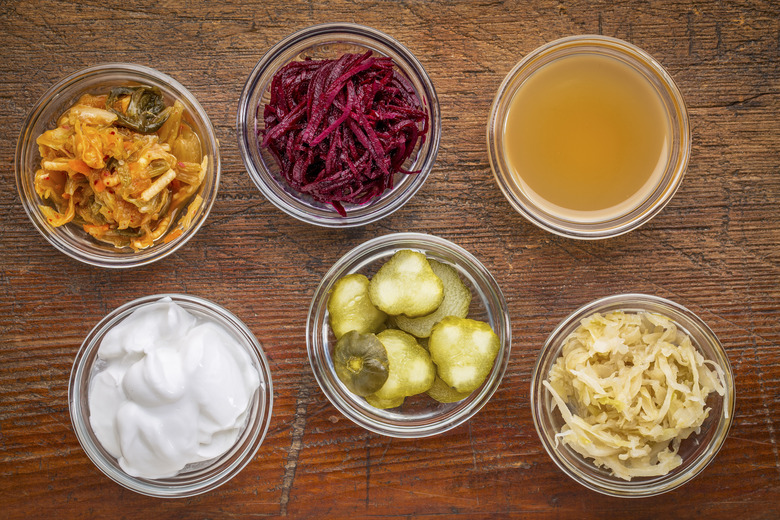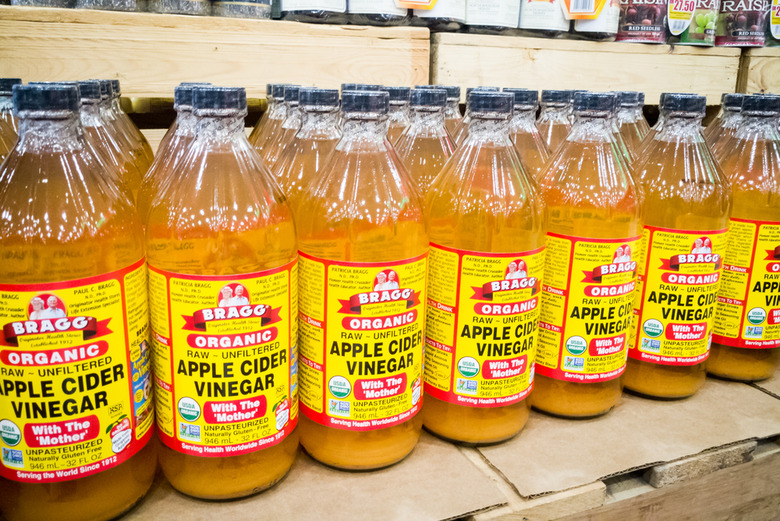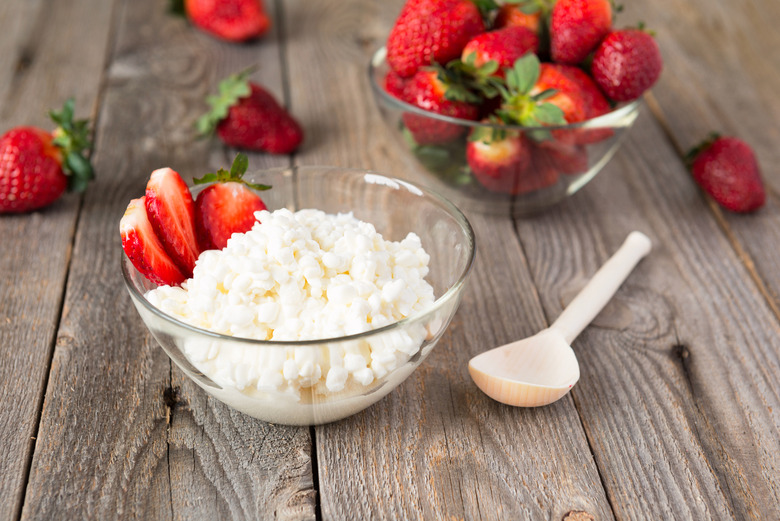You Never Need To Take Probiotics If You Eat These 15 Foods Slideshow
Gut health is getting a lot of buzz these days — it's an often-misconstrued trend that often involves dropping way too much money on probiotic supplements and products that often don't even work.
It's been getting trendier and trendier to "heal your gut" — a phenomenon that has resulted in the brewing of probiotic beer, probiotic-infused desserts, and more. All of the buzz around good gut bacteria has blown gut health way out of proportion. While gut health can help balance your mood, stress levels, hormones, and other somewhat invisible aspects of your health, it's often misunderstood as being an agent for weight loss or dieting. Gut health, when you get down to it, is really just assistance for your digestive system.
Probiotics are the gut bacteria that aid in healthy digestion. Without probiotics, you would likely experience a great deal more bloating, gas, and discomfort — and derive less nutrition from your food. And while bloating is a perfectly healthy byproduct of digestion, it can sometimes be a sign that your stomach is struggling to digest the food you've eaten.
Probiotics are pretty expensive, and they're also pretty unnecessary. There are lots of natural, healthy foods that contain the good gut bacteria you need without requiring a costly daily supplement. Here are 15 that provide significant gut health benefits to consider adding to your diet.
Apple Cider Vinegar
There's a reason this health food has been touted as a magic weight loss elixir. It's great for you — specifically, for your gut. And while having a healthy gut won't make you lose weight, it will help reduce acid reflux, regulate your digestion, and much more. While you're at it, pour a glass for Fido. It's just as good for your dog as it is for you!
Cottage Cheese
It's a divisive food — you either love it or you hate it. But some kinds, such as the kind from the brand Good Culture, are made with healthy gut bacteria during the fermentation process. It's also really high in protein, making it a great choice to pair with fruit for a post-workout snack.
Dark Chocolate
Dark chocolate is double trouble — it's got both pre and probiotics in every bite. Prebiotics feed the gut bacteria you already have. Probiotics add new gut bacteria to the mix. Dark chocolate, the deliciously healthy dessert food, has a little bit of both. Here are some other things we bet you didn't know about the superfood.
Garlic
This flavor-boosting agent might make you smell bad, but it's a great prebiotic (not probiotic), which means it can help feed the existing bacteria present in your gut. Prebiotics are just as important to gut health as probiotics — so it's a good thing almost every dinner recipe in existence uses at least a clove of garlic. Black garlic is even better for you, so opt for that variety when you can.
Kefir
This creamy drink has the texture of drinkable yogurt. It's made by adding kefir grains to some variety of milk — usually cow or goat. Kefir grains are strains of concentrated bacteria and have been linked to all kinds of health benefits, including your gut health. Unlike yogurt, kefir contains multiple strains of yeast and bacteria, meaning that it's actually better for you than your typical probiotic dairy.
Kimchi
This Korean side dish packs a heck of a spice — and a ton of probiotic benefits. Kimchi contains lactic acid bacteria that your gut needs. Add some to your spicy Asian dishes to make it easier on your stomach and less likely to cause heartburn or other upset.
Kombucha
Though it sounds fancy, kombucha is actually just a drink made by fermenting black or green tea. There are tons of flavor varieties on the market now, ranging from normal ones like lemon and ginger to odd offshoots like chocolate and pumpkin spice.
Mango
Like garlic, mango feeds the good bacteria in your gut to keep them healthy naturally, without introducing any new strains. According to a study published in the Journal of Nutrition, mice experienced a significant boost in gut health from consuming mangoes. The tropical fruit is super-sweet all on its own, but can also be used in a recipe or two.
Microalgae
A trendy superfood you've likely never heard of, microalgae comes in a powder you can add to your coffee, yogurt, or smoothie. The umbrella term consists of ocean-based plants like spirulina, chorella, and blue-green algae and can be found in specialized health food stores.
Miso
Commonly used in miso soup, the seasoning is often made into a paste from fermented soybeans. In Japan, miso soup is traditionally eaten for breakfast; but we think it makes a terrific side dish for sushi here in the States. Regardless of when you eat it, you're getting some great gut health benefits if you do.
Pickles
Whatever fermented vegetables you consume, they're probably great for your gut. Pickles, made from cucumbers canned in vinegar, are no exception. Some people have taken the pickle way too far — but we're still fans of the flavorful, crunchy food. The sour kind is loaded with lactic acid bacteria and other helpful cultures.
Sauerkraut
It's a great side for a barbecue and flavorful way to jazz up a hot dog — but it also has more healthy qualities than you'd expect. In addition to the probiotics it offers, the fermented cabbage dish is loaded with fiber, vitamins, and minerals.
Sourdough Bread
True sourdough is made with a probiotic starter that contains bacteria from the genus Lactobacillus. Here's a secret you should know before buying your next loaf of bread: The mass-produced sourdough sliced in a popularly branded loaf is likely lacking when it comes to probiotic benefit. But the freshly baked, local variety is a good bet for bacteria (and could be a solution for gluten intolerance).
Tempeh
In addition to being a fabulous source of protein for vegetarians and vegans, this soy-based product is made of fermented beans and therefore provides a significant source of probiotic bacteria. It's another food that can be tricky to make taste good; here are a few tasty recipes.
Yogurt
Since yogurt is made from fermented dairy, it's loaded with probiotic cultures that are great for your gut. Greek yogurt has more protein and more probiotics than its non-Greek counterparts, so we recommend you opt for a low-sugar variety. If you're bored of plain old yogurt, here are 11 new ways to use it.















